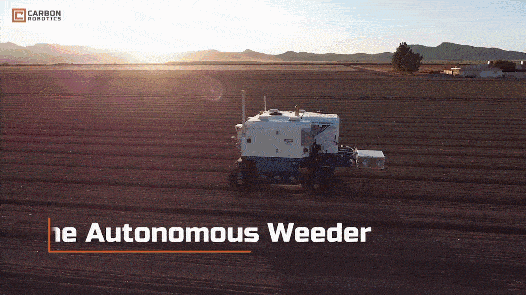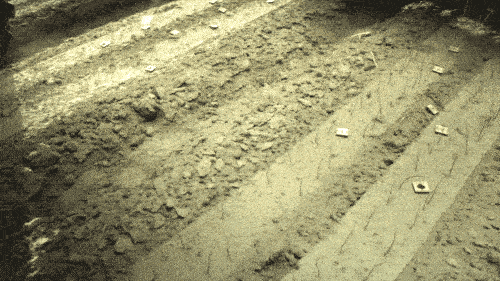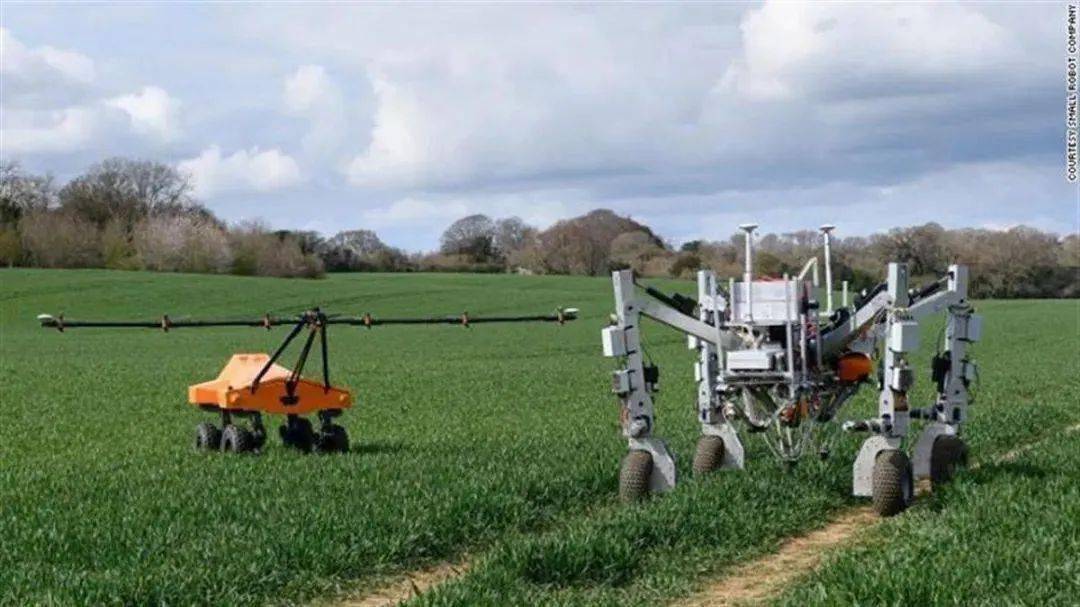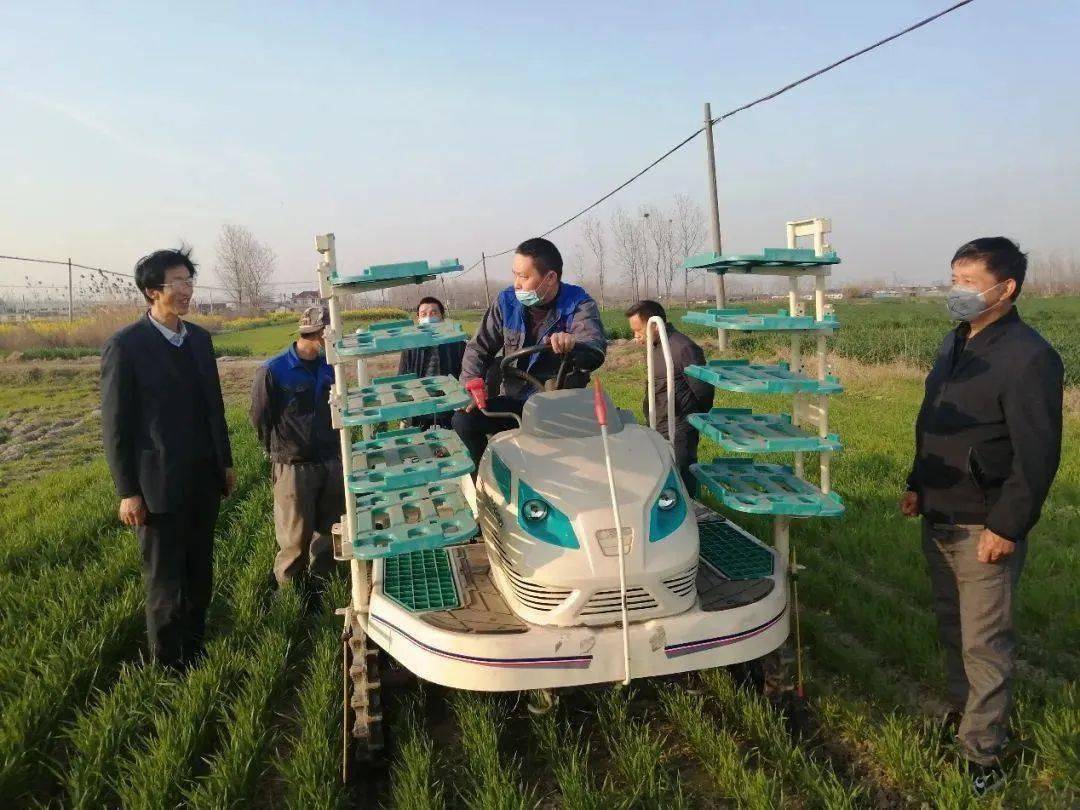 Technology peripherals
Technology peripherals
 AI
AI
 Can AI remove 100,000 grasses in one hour? 'Robot+' empowers agriculture to explore sustainable development
Can AI remove 100,000 grasses in one hour? 'Robot+' empowers agriculture to explore sustainable development
Can AI remove 100,000 grasses in one hour? 'Robot+' empowers agriculture to explore sustainable development
While our agricultural field is still using a large amount of herbicides, tens of thousands of acres of vegetable farms in the United States no longer use herbicides! The robot laser weeding mode is used. Such a laser weeding robot can kill 200,000 weeds per hour with sub-millimeter accuracy. And all this is thanks to the remarkable development of artificial intelligence (AI).

Use "artificial intelligence" to weed!
Farms in the Central Valley of California, USA, are the national vegetable basket in the United States. More than 1/3 of the vegetables and 2/3 of the fruits in the entire country are produced in California. The total farm area exceeds 25 million acres. They are like this Growing vegetables.
Principles of weeding:
The weeding principle of LaserWeeder is to use high-power laser to emit heat energy, aiming at the growth points of weeds, causing them to wither and die. Can use laser to remove weeds:
On the one hand, LaserWeeder is equipped with advanced computer vision and artificial intelligence technology, which can distinguish crops and weeds in real time, and adjust laser intensity and frequency according to different crops.On the other hand, LaserWeeder can also collect and analyze field data, such as crop quantity, size, health status, soil moisture, etc., to provide farmers with more information and suggestions.


Traditional weeding methods have many shortcomings: the use of herbicides will pollute the environment and crops, affecting quality and safety; the use of mechanical weeding will destroy the soil structure and ecological balance; the use of manual weeding is time-consuming, laborious, and difficult to recruit and manage.
LaserWeeder can effectively remove weeds without using herbicides and mechanical weeding, protect the health of crops and soil, and save manpower and material resources.
When will laser weeding robots become popular in my country?
According to statistics from authoritative organizations, there are more than 200 types of herbicides allowed to be used by agricultural departments around the world. Only my country has incomplete statistics. The amount of herbicides used is as high as 100,000 tons per year. Although it brings convenience, it also affects farmland and Water sources and air are seriously polluted, which in turn will contaminate crops and cause various food safety issues. Therefore, the world is calling for an end to the abuse of herbicides.
Our country’s agriculture is different from that of the United States. Currently, the LaserWeeder weeder can only be used on large-scale farmland of more than 1,200 acres, and is not suitable for small-scale agricultural production in our country. In addition, it is expensive and is not suitable for use. in agricultural production in my country.
However, as our country continues to promote "robots" to empower all walks of life, and as our country's agricultural scale operations and mechanization levels continue to improve, I believe that there will be more applicable products in the future. born.
About agricultural robots
Today,Agricultural robots are a rapidly growing market. It is expected that the global agricultural robot market will reach US$16.5 billion by 2025, with a compound annual growth rate of 25.34%. The demand for agricultural robots mainly comes from the improvement of efficiency, quality, sustainability and safety of agricultural production, as well as the shortage of agricultural labor and rising costs. Weeding is one of the important and difficult aspects of agricultural production. Agricultural robots that can provide effective, environmentally friendly, and intelligent weeding solutions have huge market potential.
In addition to the laser weeding robots introduced above, in recent years,With the rapid rise and vigorous development of Beidou navigation, artificial intelligence, big data, cloud computing, Internet of Things and advanced manufacturing and other technical fields, lawnmowers Iterative upgrades are also constantly accelerating.
01 Electric weeding
The British company Small Robot has successfully developed a robot that can remove weeds. The robot can accurately capture the weeds that need to be removed and use electric power technology to successfully eradicate them.

Robot Tom can "scan" 20 hectares of land every day and collect data for the robot Dick that will come on stage next. Dick the Weeder can then use this data to clear weeds. Finally, Harry the robot will be able to sow seeds on clean soil.
The company stated that once this complete "weeding-seeding" system is put into operation, it can help farmers save 40% of costs and reduce the use of pesticides by up to 95%.
02 Flame weeding
This Beidou Navigation rotary tillage sowing flame grass sealing compound operating machine and Beidou Navigation digital row mechanical weeder were independently developed by the scientific research team of Professor Zhang Ruihong of the School of Mechanical Engineering of Yangzhou University.

According to Ji Zhangding, an agronomist in Yangzhou City, flame sealing uses liquefied gas as fuel, and its cost is 12-15 yuan/mu, which is 5 yuan/mu more than using sealing chemicals; in the case of rice, two weedings are required The cost of pesticides is 40-60 yuan/mu, while precise mechanical weeding only costs 10 yuan/mu for fuel and 5 yuan/mu for machine depreciation. In general, flame sealing and precision mechanical weeding can save 30 yuan/acre compared with chemical weeding.
Since the beginning of this year, the popularity of chatgpt has triggered a craze about artificial intelligence, followed by the concept of "embodied intelligence" of AI robots. Each round of new technological revolution and the evolution of industrial revolution have Promote artificial intelligence (AI) to come out of the laboratory and enter and integrate with everyday things.
With the development of AI, the whole society will invest more research and development power and more cutting-edge technology to continue to promote the development of agricultural AI technology and help sustainably and humanely develop agricultural science and technology.
At the beginning of this year, 17 departments including the Ministry of Industry and Information Technology jointly issued the "Robot Application Action Implementation Plan" (hereinafter referred to as the "Plan"). The "Plan" clearly stated that focused on 10 key applications The fields are manufacturing, agriculture, construction, energy, and trade logistics in the field of economic development, and medical health, elderly care services, education, business community services, safety emergency, and extreme environment applications in the field of social and people's livelihood.
The release of the "Plan" has pressed the "acceleration button" for the development of China's robot industry, promoting robots to enter thousands of households and industries more quickly. The "China Robot Industry Development Report (2022)" shows that in 2021, the operating income of my country's robot industry will exceed 130 billion yuan, and the output of industrial robots will reach 366,000 units, an increase of 10 times compared with 2015,firmly ranks first in the world Industrial robot market.
We also look forward to more agricultural robots that adapt to the current situation of my country's agriculture entering production, contributing to the development of my country's agriculture, and giving full play to the leading role of real "robots"!Original statement: Please indicate the source when reprinting original articles,
Disclaimer: Some of the pictures in this article come from the Internet,
If there is any infringement, please contact us in time to make relevant corrections.
The above is the detailed content of Can AI remove 100,000 grasses in one hour? 'Robot+' empowers agriculture to explore sustainable development. For more information, please follow other related articles on the PHP Chinese website!

Hot AI Tools

Undresser.AI Undress
AI-powered app for creating realistic nude photos

AI Clothes Remover
Online AI tool for removing clothes from photos.

Undress AI Tool
Undress images for free

Clothoff.io
AI clothes remover

AI Hentai Generator
Generate AI Hentai for free.

Hot Article

Hot Tools

Notepad++7.3.1
Easy-to-use and free code editor

SublimeText3 Chinese version
Chinese version, very easy to use

Zend Studio 13.0.1
Powerful PHP integrated development environment

Dreamweaver CS6
Visual web development tools

SublimeText3 Mac version
God-level code editing software (SublimeText3)

Hot Topics
 1377
1377
 52
52
 phpmyadmin creates data table
Apr 10, 2025 pm 11:00 PM
phpmyadmin creates data table
Apr 10, 2025 pm 11:00 PM
To create a data table using phpMyAdmin, the following steps are essential: Connect to the database and click the New tab. Name the table and select the storage engine (InnoDB recommended). Add column details by clicking the Add Column button, including column name, data type, whether to allow null values, and other properties. Select one or more columns as primary keys. Click the Save button to create tables and columns.
 How to create an oracle database How to create an oracle database
Apr 11, 2025 pm 02:33 PM
How to create an oracle database How to create an oracle database
Apr 11, 2025 pm 02:33 PM
Creating an Oracle database is not easy, you need to understand the underlying mechanism. 1. You need to understand the concepts of database and Oracle DBMS; 2. Master the core concepts such as SID, CDB (container database), PDB (pluggable database); 3. Use SQL*Plus to create CDB, and then create PDB, you need to specify parameters such as size, number of data files, and paths; 4. Advanced applications need to adjust the character set, memory and other parameters, and perform performance tuning; 5. Pay attention to disk space, permissions and parameter settings, and continuously monitor and optimize database performance. Only by mastering it skillfully requires continuous practice can you truly understand the creation and management of Oracle databases.
 How to create oracle database How to create oracle database
Apr 11, 2025 pm 02:36 PM
How to create oracle database How to create oracle database
Apr 11, 2025 pm 02:36 PM
To create an Oracle database, the common method is to use the dbca graphical tool. The steps are as follows: 1. Use the dbca tool to set the dbName to specify the database name; 2. Set sysPassword and systemPassword to strong passwords; 3. Set characterSet and nationalCharacterSet to AL32UTF8; 4. Set memorySize and tablespaceSize to adjust according to actual needs; 5. Specify the logFile path. Advanced methods are created manually using SQL commands, but are more complex and prone to errors. Pay attention to password strength, character set selection, tablespace size and memory
 How to write oracle database statements
Apr 11, 2025 pm 02:42 PM
How to write oracle database statements
Apr 11, 2025 pm 02:42 PM
The core of Oracle SQL statements is SELECT, INSERT, UPDATE and DELETE, as well as the flexible application of various clauses. It is crucial to understand the execution mechanism behind the statement, such as index optimization. Advanced usages include subqueries, connection queries, analysis functions, and PL/SQL. Common errors include syntax errors, performance issues, and data consistency issues. Performance optimization best practices involve using appropriate indexes, avoiding SELECT *, optimizing WHERE clauses, and using bound variables. Mastering Oracle SQL requires practice, including code writing, debugging, thinking and understanding the underlying mechanisms.
 How to add, modify and delete MySQL data table field operation guide
Apr 11, 2025 pm 05:42 PM
How to add, modify and delete MySQL data table field operation guide
Apr 11, 2025 pm 05:42 PM
Field operation guide in MySQL: Add, modify, and delete fields. Add field: ALTER TABLE table_name ADD column_name data_type [NOT NULL] [DEFAULT default_value] [PRIMARY KEY] [AUTO_INCREMENT] Modify field: ALTER TABLE table_name MODIFY column_name data_type [NOT NULL] [DEFAULT default_value] [PRIMARY KEY]
 Detailed explanation of nested query instances in MySQL database
Apr 11, 2025 pm 05:48 PM
Detailed explanation of nested query instances in MySQL database
Apr 11, 2025 pm 05:48 PM
Nested queries are a way to include another query in one query. They are mainly used to retrieve data that meets complex conditions, associate multiple tables, and calculate summary values or statistical information. Examples include finding employees above average wages, finding orders for a specific category, and calculating the total order volume for each product. When writing nested queries, you need to follow: write subqueries, write their results to outer queries (referenced with alias or AS clauses), and optimize query performance (using indexes).
 What are the integrity constraints of oracle database tables?
Apr 11, 2025 pm 03:42 PM
What are the integrity constraints of oracle database tables?
Apr 11, 2025 pm 03:42 PM
The integrity constraints of Oracle databases can ensure data accuracy, including: NOT NULL: null values are prohibited; UNIQUE: guarantee uniqueness, allowing a single NULL value; PRIMARY KEY: primary key constraint, strengthen UNIQUE, and prohibit NULL values; FOREIGN KEY: maintain relationships between tables, foreign keys refer to primary table primary keys; CHECK: limit column values according to conditions.
 What does oracle do
Apr 11, 2025 pm 06:06 PM
What does oracle do
Apr 11, 2025 pm 06:06 PM
Oracle is the world's largest database management system (DBMS) software company. Its main products include the following functions: relational database management system (Oracle database) development tools (Oracle APEX, Oracle Visual Builder) middleware (Oracle WebLogic Server, Oracle SOA Suite) cloud service (Oracle Cloud Infrastructure) analysis and business intelligence (Oracle Analytics Cloud, Oracle Essbase) blockchain (Oracle Blockchain Pla



